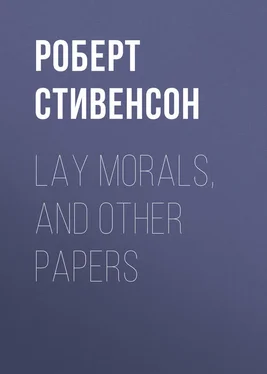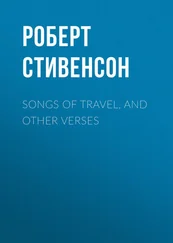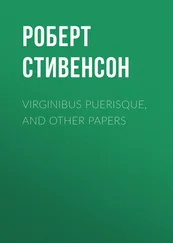Роберт Стивенсон - Lay Morals, and Other Papers
Здесь есть возможность читать онлайн «Роберт Стивенсон - Lay Morals, and Other Papers» — ознакомительный отрывок электронной книги совершенно бесплатно, а после прочтения отрывка купить полную версию. В некоторых случаях можно слушать аудио, скачать через торрент в формате fb2 и присутствует краткое содержание. Жанр: literature_19, foreign_antique, foreign_prose, essays, на английском языке. Описание произведения, (предисловие) а так же отзывы посетителей доступны на портале библиотеки ЛибКат.
- Название:Lay Morals, and Other Papers
- Автор:
- Жанр:
- Год:неизвестен
- ISBN:нет данных
- Рейтинг книги:3 / 5. Голосов: 1
-
Избранное:Добавить в избранное
- Отзывы:
-
Ваша оценка:
- 60
- 1
- 2
- 3
- 4
- 5
Lay Morals, and Other Papers: краткое содержание, описание и аннотация
Предлагаем к чтению аннотацию, описание, краткое содержание или предисловие (зависит от того, что написал сам автор книги «Lay Morals, and Other Papers»). Если вы не нашли необходимую информацию о книге — напишите в комментариях, мы постараемся отыскать её.
Lay Morals, and Other Papers — читать онлайн ознакомительный отрывок
Ниже представлен текст книги, разбитый по страницам. Система сохранения места последней прочитанной страницы, позволяет с удобством читать онлайн бесплатно книгу «Lay Morals, and Other Papers», без необходимости каждый раз заново искать на чём Вы остановились. Поставьте закладку, и сможете в любой момент перейти на страницу, на которой закончили чтение.
Интервал:
Закладка:
And as the authentic clue to such a labyrinth and change of scene, do you offer me these two score words? these five bald prohibitions? For the moral precepts are no more than five; the first four deal rather with matters of observance than of conduct; the tenth, Thou shalt not covet , stands upon another basis, and shall be spoken of ere long. The Jews, to whom they were first given, in the course of years began to find these precepts insufficient; and made an addition of no less than six hundred and fifty others! They hoped to make a pocket-book of reference on morals, which should stand to life in some such relation, say, as Hoyle stands in to the scientific game of whist. The comparison is just, and condemns the design; for those who play by rule will never be more than tolerable players; and you and I would like to play our game in life to the noblest and the most divine advantage. Yet if the Jews took a petty and huckstering view of conduct, what view do we take ourselves, who callously leave youth to go forth into the enchanted forest, full of spells and dire chimeras, with no guidance more complete than is afforded by these five precepts?
Honour thy father and thy mother . Yes, but does that mean to obey? and if so, how long and how far? Thou shall not kill . Yet the very intention and purport of the prohibition may be best fulfilled by killing. Thou shall not commit adultery . But some of the ugliest adulteries are committed in the bed of marriage and under the sanction of religion and law. Thou shalt not bear false witness . How? by speech or by silence also? or even by a smile? Thou shalt not steal . Ah, that indeed! But what is to steal ?
To steal? It is another word to be construed; and who is to be our guide? The police will give us one construction, leaving the word only that least minimum of meaning without which society would fall in pieces; but surely we must take some higher sense than this; surely we hope more than a bare subsistence for mankind; surely we wish mankind to prosper and go on from strength to strength, and ourselves to live rightly in the eye of some more exacting potentate than a policeman. The approval or the disapproval of the police must be eternally indifferent to a man who is both valorous and good. There is extreme discomfort, but no shame, in the condemnation of the law. The law represents that modicum of morality which can be squeezed out of the ruck of mankind; but what is that to me, who aim higher and seek to be my own more stringent judge? I observe with pleasure that no brave man has ever given a rush for such considerations. The Japanese have a nobler and more sentimental feeling for this social bond into which we all are born when we come into the world, and whose comforts and protection we all indifferently share throughout our lives: – but even to them, no more than to our Western saints and heroes, does the law of the state supersede the higher law of duty. Without hesitation and without remorse, they transgress the stiffest enactments rather than abstain from doing right. But the accidental superior duty being thus fulfilled, they at once return in allegiance to the common duty of all citizens; and hasten to denounce themselves; and value at an equal rate their just crime and their equally just submission to its punishment.
The evading of the police will not long satisfy an active conscience or a thoughtful head. But to show you how one or the other may trouble a man, and what a vast extent of frontier is left unridden by this invaluable eighth commandment, let me tell you a few pages out of a young man’s life.
He was a friend of mine; a young man like others; generous, flighty, as variable as youth itself, but always with some high motions and on the search for higher thoughts of life. I should tell you at once that he thoroughly agrees with the eighth commandment. But he got hold of some unsettling works, the New Testament among others, and this loosened his views of life and led him into many perplexities. As he was the son of a man in a certain position, and well off, my friend had enjoyed from the first the advantages of education, nay, he had been kept alive through a sickly childhood by constant watchfulness, comforts, and change of air; for all of which he was indebted to his father’s wealth.
At college he met other lads more diligent than himself, who followed the plough in summer-time to pay their college fees in winter; and this inequality struck him with some force. He was at that age of a conversible temper, and insatiably curious in the aspects of life; and he spent much of his time scraping acquaintance with all classes of man- and woman-kind. In this way he came upon many depressed ambitions, and many intelligences stunted for want of opportunity; and this also struck him. He began to perceive that life was a handicap upon strange, wrong-sided principles; and not, as he had been told, a fair and equal race. He began to tremble that he himself had been unjustly favoured, when he saw all the avenues of wealth, and power, and comfort closed against so many of his superiors and equals, and held unwearyingly open before so idle, so desultory, and so dissolute a being as himself. There sat a youth beside him on the college benches, who had only one shirt to his back, and, at intervals sufficiently far apart, must stay at home to have it washed. It was my friend’s principle to stay away as often as he dared; for I fear he was no friend to learning. But there was something that came home to him sharply, in this fellow who had to give over study till his shirt was washed, and the scores of others who had never an opportunity at all. If one of these could take his place , he thought; and the thought tore away a bandage from his eyes. He was eaten by the shame of his discoveries, and despised himself as an unworthy favourite and a creature of the back-stairs of Fortune. He could no longer see without confusion one of these brave young fellows battling up-hill against adversity. Had he not filched that fellow’s birthright? At best was he not coldly profiting by the injustice of society, and greedily devouring stolen goods? The money, indeed, belonged to his father, who had worked, and thought, and given up his liberty to earn it; but by what justice could the money belong to my friend, who had, as yet, done nothing but help to squander it? A more sturdy honesty, joined to a more even and impartial temperament, would have drawn from these considerations a new force of industry, that this equivocal position might be brought as swiftly as possible to an end, and some good services to mankind justify the appropriation of expense. It was not so with my friend, who was only unsettled and discouraged, and filled full of that trumpeting anger with which young men regard injustices in the first blush of youth; although in a few years they will tamely acquiesce in their existence, and knowingly profit by their complications. Yet all this while he suffered many indignant pangs. And once, when he put on his boots, like any other unripe donkey, to run away from home, it was his best consolation that he was now, at a single plunge, to free himself from the responsibility of this wealth that was not his, and do battle equally against his fellows in the warfare of life.
Some time after this, falling into ill-health, he was sent at great expense to a more favourable climate; and then I think his perplexities were thickest. When he thought of all the other young men of singular promise, upright, good, the prop of families, who must remain at home to die, and with all their possibilities be lost to life and mankind; and how he, by one more unmerited favour, was chosen out from all these others to survive; he felt as if there were no life, no labour, no devotion of soul and body, that could repay and justify these partialities. A religious lady, to whom he communicated these reflections, could see no force in them whatever. ‘It was God’s will,’ said she. But he knew it was by God’s will that Joan of Arc was burnt at Rouen, which cleared neither Bedford nor Bishop Cauchon; and again, by God’s will that Christ was crucified outside Jerusalem, which excused neither the rancour of the priests nor the timidity of Pilate. He knew, moreover, that although the possibility of this favour he was now enjoying issued from his circumstances, its acceptance was the act of his own will; and he had accepted it greedily, longing for rest and sunshine. And hence this allegation of God’s providence did little to relieve his scruples. I promise you he had a very troubled mind. And I would not laugh if I were you, though while he was thus making mountains out of what you think molehills, he were still (as perhaps he was) contentedly practising many other things that to you seem black as hell. Every man is his own judge and mountain-guide through life. There is an old story of a mote and a beam, apparently not true, but worthy perhaps of some consideration. I should, if I were you, give some consideration to these scruples of his, and if I were he, I should do the like by yours; for it is not unlikely that there may be something under both. In the meantime you must hear how my friend acted. Like many invalids, he supposed that he would die. Now, should he die, he saw no means of repaying this huge loan which, by the hands of his father, mankind had advanced him for his sickness. In that case it would be lost money. So he determined that the advance should be as small as possible; and, so long as he continued to doubt his recovery, lived in an upper room, and grudged himself all but necessaries. But so soon as he began to perceive a change for the better, he felt justified in spending more freely, to speed and brighten his return to health, and trusted in the future to lend a help to mankind, as mankind, out of its treasury, had lent a help to him.
Читать дальшеИнтервал:
Закладка:
Похожие книги на «Lay Morals, and Other Papers»
Представляем Вашему вниманию похожие книги на «Lay Morals, and Other Papers» списком для выбора. Мы отобрали схожую по названию и смыслу литературу в надежде предоставить читателям больше вариантов отыскать новые, интересные, ещё непрочитанные произведения.
Обсуждение, отзывы о книге «Lay Morals, and Other Papers» и просто собственные мнения читателей. Оставьте ваши комментарии, напишите, что Вы думаете о произведении, его смысле или главных героях. Укажите что конкретно понравилось, а что нет, и почему Вы так считаете.












